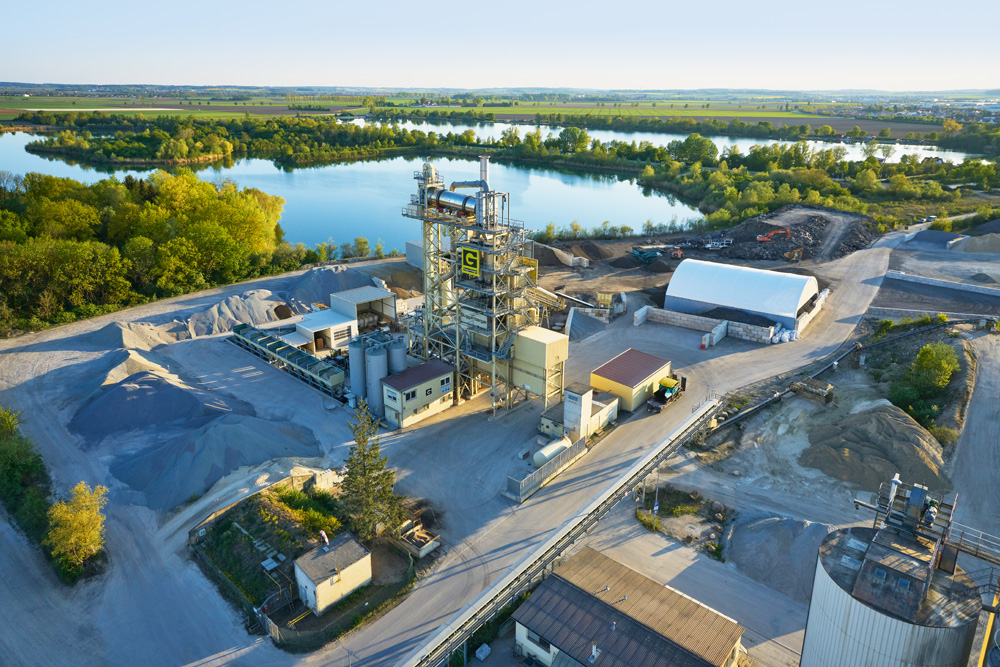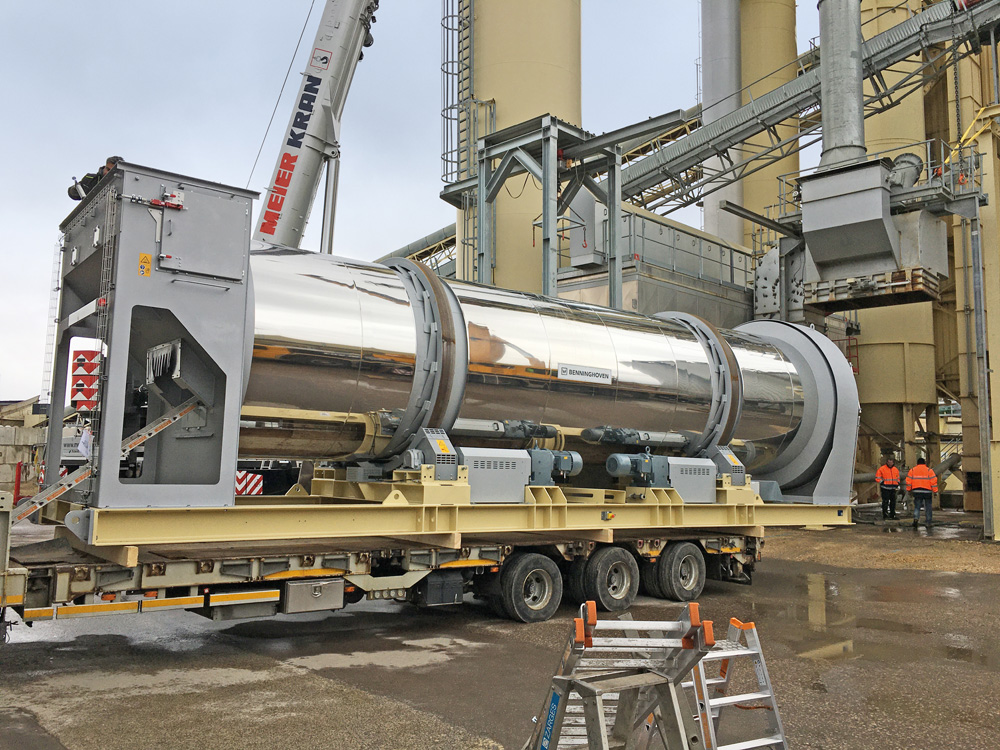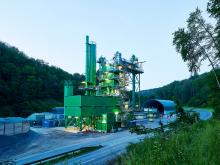
The usual service life of an asphalt plant can be from 20-30 years, but a lot of changes can happen in this time such as requirements on formulas and qualities of mixes, or regulations operators have to comply with in order to get an operating licence.
However, Benninghoven has a retrofit division that offers an array of upgrades that can allow an existing plant to meet the latest requirements in terms of legislation, as well as advances in mix design.
Customers now demand high quality asphalts that require a plant to have specific dosing options, while legislators have tightened up emissions standards and the quantities of RAP fed into the process has been increased. Meanwhile, dust and noise protection regulations required to retain an operating licence have been made stricter, often because residential areas are now located next to an asphalt mixing plant, which would previously have been in a more remote location. In addition, alternative fuels are now sometimes required for the mixing plant burner.
The firm says that its retrofit packages can bring an existing asphalt mixing plant up to the current state-of-the-art technology. A package can protect an existing site, ensuring that it retains its operating licence, while also delivering sustainability and economy, as replacing key components and integrating recycling technologies will pay for themselves. The upgrades include modern control technology that improves plant performance and working efficiency, while allowing a customer to add individual requirements, leaving plants in a better state after the retrofit than before it. In addition, the firm says that its retrofit solutions can be used for plants from other manufacturers.
Retrofit solutions can be more beneficial than investing in new equipment, according to Benninghoven. In densely populated regions, a retrofit may well be more or less the only option, as getting new local authority consent would involve a complex process and the outcome would be uncertain.
When an existing plant is upgraded, new consent may not be required in many countries.
A technical team from Benninghoven will assist the client from design, through technical implementation to realisation on site. The team will also make direct contact with the factory, which is of importance to the client as no two mixing plants are alike. Many solutions have to be adapted individually or even worked out from scratch. To ensure the upgrade works effectively, the procedure is divided into three steps: development of a joint retrofit plan; technical investigation and implementation at the Benninghoven factor; implementation of the new system on site.

Every Benninghoven retrofit project starts with an on-site meeting. A team from Wirtgen visits the customer along with the Benninghoven technicians. A written record is made of the plant technology in situ and of all the desired changes, with Benninghoven planning manuals playing a role in this process. Photos of the plant and of the components to be renewed are also taken at this initial meeting.
A typical project was the retrofit of the asphalt mixing plant in Mintraching in Bavaria, owned by Guggenberger. The aim was to renew a Benninghoven BA 4000-type plant. The focus in this case was to increase the performance and efficiency of the plant, replacing the dryer drum and the burner. It soon became clear that a standard drum would not fit. So this provided a key challenge for the technical team at the Benninghoven factory.
Following on from the on-site meeting at the plant location in Mintraching, the Wirtgen Group team discussed the requirements of Guggenberger GmbH at the main Benninghoven factory. The team realised that there was a whole range of requirements, which off-the-peg solutions would be unable to deal with. But Benninghoven’s Technical Office has experience of such requirements with retrofit projects and believed it could implement even this complex project economically for the customer. In developing the ideal solution, Benninghoven relies on the expertise of the entire Technical Office paired with the experience of the fitters on site. The team has experience of getting more performance out of old technology and also in adapting existing technical components to suit. The company analysed the existing components on site, which provided information on what needed to be taken into account and what needed improving. Once the design process was complete, the engineers prepared technical specifications and layout drawings.
The Wirtgen Group team presented this technical solution to the customer representatives and discussed it with them until the project was approved.
Once the retrofit plan and the new components had been approved, manufacturing was carried out in the Benninghoven factory and the various pieces were transported to the job site. The Benninghoven team then worked with the technicians from the client to deliver the retrofit project.
Modern Benninghoven technology was integrated into the existing asphalt mixing plant which will allow it to operate economically for years, also with reduced emissions. The heart of this equipment is the burner and the dryer drum. With oil, liquid gas and coal dust, the new EVO JET 3 burner can now fire three fuels instead of two, which will make Guggenberger more independent of fluctuating energy costs in future. A new coal dust dosing system has been fitted for this fuel; its overhauled design will bring key benefits for Guggenberger in terms of functionality, safety and fuel consumption. The burner also delivers higher performance and helps to boost plant performance. Drying performance has been increased significantly, especially in the production of mixes such as stone mastic and mastic asphalts which are made entirely from white mineral. In numerical terms, performance has been increased from 140-190tonnes/hour.









